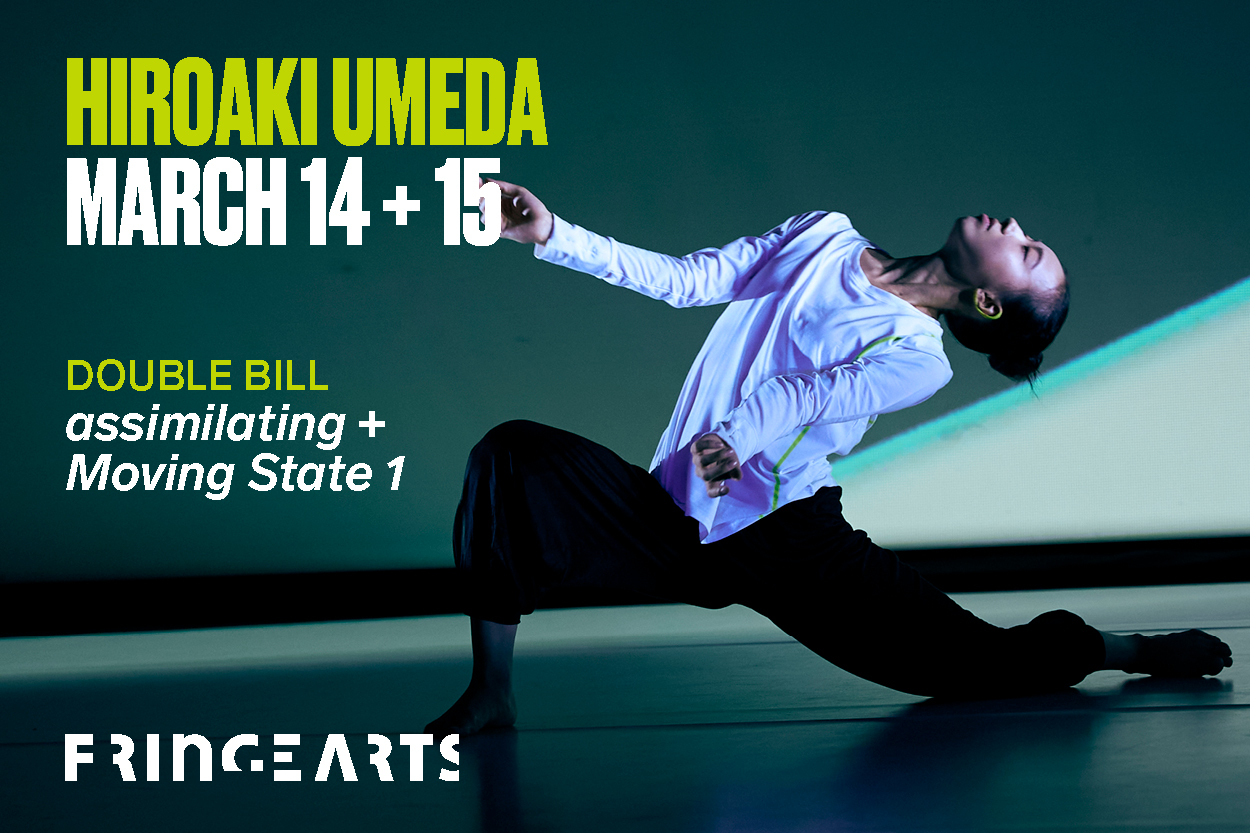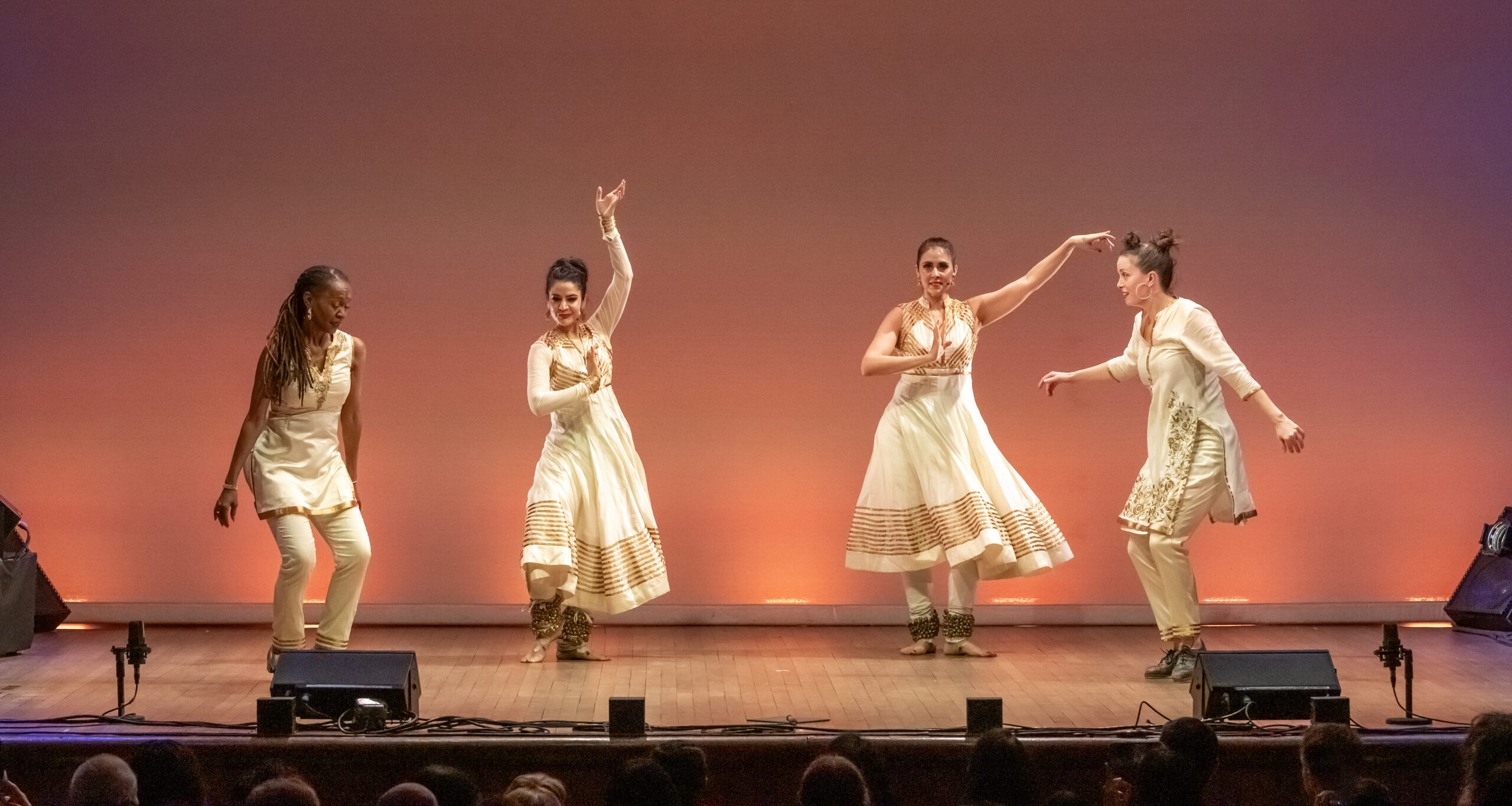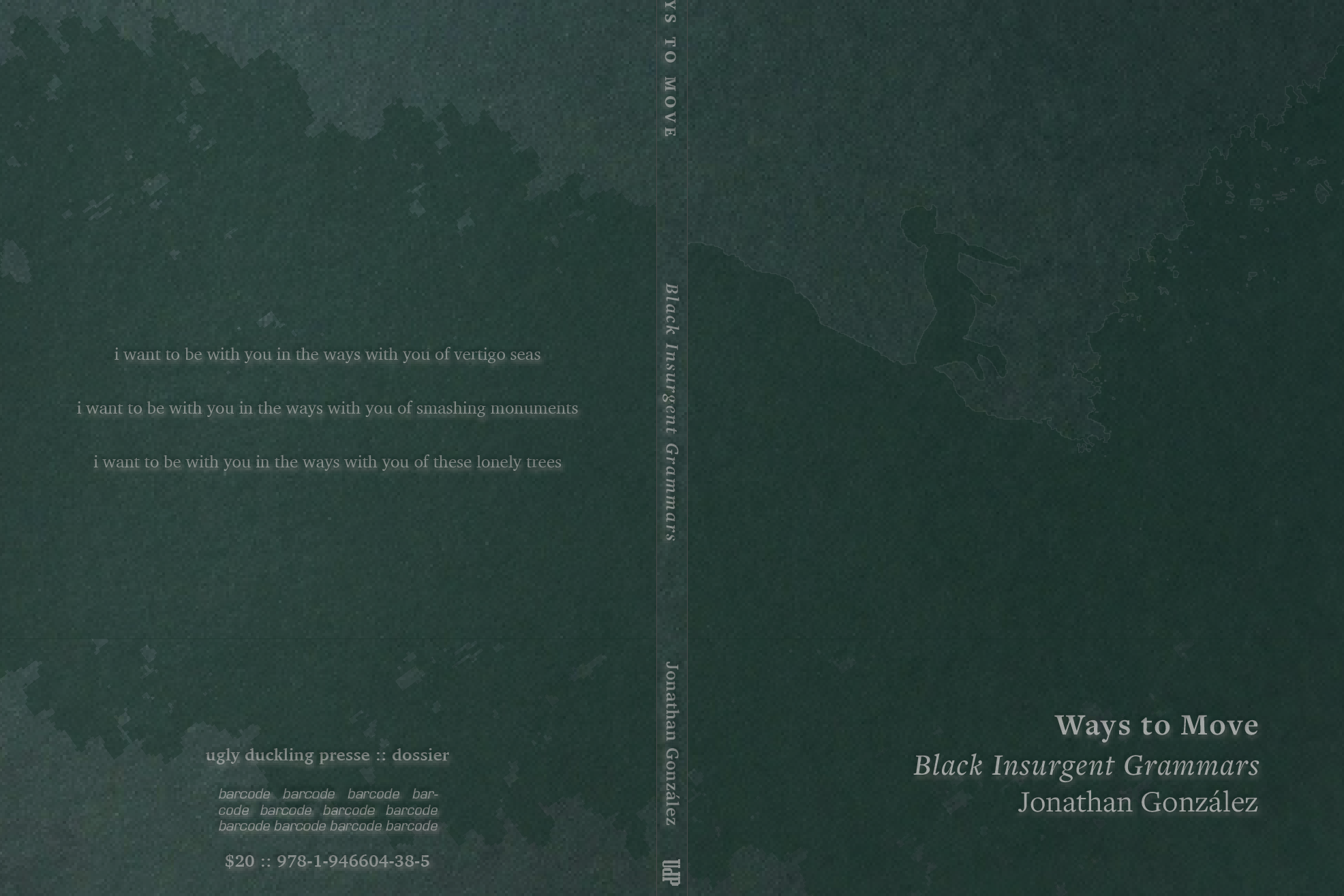A brief review is far too small a container for the multitudes that are American Chameleon: The Living Installments. Presented by Jaamil Olawale Kosoko (but full of the voices of many artists), the project is made up of video and poetry, sound art and facilitated conversations, reading groups and multiple syllabi.
Perhaps the richest iteration of the project was The Living Installments, an afternoon spent on YouTube and Discord in recognition of the International Day of Peace. As we settled into this multi-pronged digital space, the audio channel filled with gasps and blips, tinny echoes dissolving into gulped vocalizations. The sounds of teeth on lips and tongues in throats felt close, almost intimate. This was The Hold, a vocal performance by Kosoko, Harris, mayfield brooks, and Ima Iduozee, with sound design by Everett-Asis Saunders.
From this vibrating aural landscape emerged A Syllabus for Peace, a conversation between Kosoko, Malkia Okech, Amalia Dache, and Ebony Noelle Golden, the facilitators of the month’s reading groups. Echoed by A Meditation on Grief and Healing, a Zoom conversation held later in the month, the dialogue swirled around themes that were present throughout each of American Chameleon’s manifestations: the prospect of inner peace, the textures and cadences of Black and queer life, the life-deepening potential of grief, the possibility of art as a healing refuge.
My notes trailed off as I watched the live archive unspool—Nile Harris drew potent lines from the conversation into Discord’s #awakening-station-gallery channel. There, words I heard (Golden: “the journey towards peace is for me a surrendering”) materialized comfortably next to the work of Audre Lorde and George Jackson. The channel was in a constant state of unfolding, branching backwards towards ancestral voices and forwards towards imagined modes of being.
It was only after this rich process of reflection and contextualization that we witnessed Chameleon (A Visual Album), a film directed by Kosoko and Idouzee. In it, bodies draped in black cloth unfurled, family photos flickered in and out of focus, and Kosoko morphed between personas, now somber beneath brown velvet, now a pop star wrapped in gilded streamers. Coiled amidst these images was poetry that narrated, among other things, the visceral after-effects of an uncle’s death.
The film was truly chameleonic. Presenting a porous subjectivity made up of constantly shifting identities, Chameleon lead us to that murky liminal space between life and death. No sooner did I form these interpretations than they were articulated with more clarity and nuance in Chameleon Contingency, a loving reading by Dr. Brenda Dixon Gottschild.
This abundance of material could easily prove overwhelming. Yet the entirety of American Chameleon was presented with an eye towards both physical and psycho-emotional safekeeping. ASL interpretation was offered throughout, digital doulas assisted in navigating virtual landscapes, and towards the end of the afternoon, mayfield brooks offered a healing session.
Just as the phrase “the hold” might equally invoke legacies of oppressive violence and loving touch, American Chameleon rooted itself in death, pain, and grief while offering attentive care to its participants. Proffering supportive scaffolding even as it resisted enclosure, American Chameleon enacted a truly abolitionist ethos.
Previous tD coverage of Kosoko’s work can be found here and here.
American Chameleon: The Living Installments, Jaamil Olawale Kosoko, 2020 Fringe Festival, Sept. 9-30.






